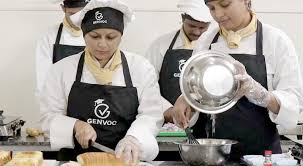Finding a job with a culinary arts degree can vary in difficulty based on a few factors:
1. Location: Urban areas with a thriving restaurant or hospitality industry typically have more opportunities than smaller or more rural areas. Cities known for their food culture, such as New York, San Francisco, or Paris, tend to offer more jobs for culinary graduates.
2. Experience: Entry-level positions are often more abundant, but competition can be high for higher-level or prestigious roles. Experience gained through internships, apprenticeships, or part-time work while studying can significantly improve job prospects.
3. Specialization: Having expertise in a particular cuisine, pastry arts, or even dietary needs (e.g., vegan or gluten-free cooking) can give you an edge. Pastry and baking arts, for instance, are often in demand in cafes, bakeries, and restaurants.
4. Network: The culinary world often values personal connections. Building a professional network during your studies through instructors, fellow students, or during internships can help open doors.
5. Reputation of the School: Graduating from a well-known culinary school, such as Le Cordon Bleu or the Culinary Institute of America, may help increase job opportunities due to the prestige associated with the institution.
6. Adaptability: Many culinary graduates don’t stick strictly to restaurant kitchens. Jobs can also be found in catering, private cooking, food styling, teaching, or even media (TV shows, food blogs, etc.).
If you are passionate and willing to put in the work, a culinary arts degree can certainly lead to job opportunities, though persistence and flexibility are key.






Comments